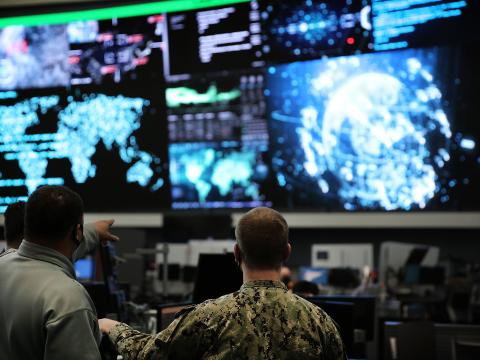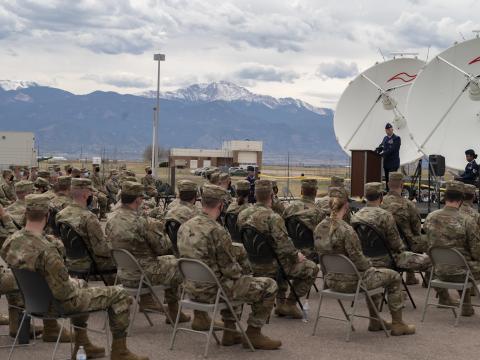Players Receive Lessons in Culture and Teamwork
The U.S. Joint Forces Command (JFCOM) is playing games with the expansion of the military’s “soft power” and decision making. Since September, the command has offered a complete training system that builds cultural awareness skills through game play and storytelling through its Joint Knowledge Online (JKO). Also available through the online management portal is a Web-based exercise application for multiplayer, small-group teams, cells and Joint Task Force (JTF) battle staff training exercises. Both tools are changing troops’ training landscape and are scheduled for integration with a major exercise next year.
The Virtual Cultural Awareness Trainer (VCAT) is a Web- and game-based training tool that builds cultural awareness in an engaging, multimedia-rich environment, offering participants the opportunity to practice skills in simulated immersive scenarios. “VCAT is distinctly different from existing cultural training methods,” says Cathleen Moran, Joint Knowledge Development and Distribution Capability Joint Management Office Advanced Technologies Division chief. “VCAT incorporates some of the most advanced learning techniques available, including game-based learning, storytelling, intelligent tutoring and remediation to help learners to quickly and efficiently develop operational cultural knowledge and acquire cultural skills.”
VCAT is fully fielded; however, it is a research prototype requiring technology development and integration with the JKO learning and management system. The trainer has a large curriculum with 156 different programs of instruction, 51 lessons or shareable content objects, six scenarios divided into 32—16 junior and 16 senior—episodes, and more than 70 videos, 500 images and 20 interactive activities and casual games. “The VCAT curriculum is organized as a collection of learning modules, or shareable content objects, in conformance with the Shareable Content Object Reference Model 2004 standard, and delivered by the JKO learning management system,” Moran explains.
The production version of VCAT made available in September focuses on the cultures of the Horn of Africa. Trainees receive automatically tailored instruction programs according to their country area of responsibility, mission and mission responsibilities with specific focus on civil affairs, security cooperation and humanitarian assistance operations. The first major operational use of the trainer will be the Combined Joint Task Force–Horn of Africa (CJTF-HOA) mission rehearsal exercise in January. Prior to that event, participants can take VCAT training at their convenience. Following the joint exercise and deployment, a deployed training team will travel to the CJTF-HOA to provide on-site training support and to capture lessons learned and feedback on the pre-deployment VCAT training after individuals have in-theater experience.
According to Moran, VCAT is important because the secretary of defense identified “soft power” as a required capability to meet nonkinetic global challenges, and cultural training is a key enabler to meet that. “Further, it is clear that in order for [Defense Department] personnel to be more effective in their missions, they require at least a basic level of intercultural competence,” she says. Compressed pre-deployment training schedules often lack time for immersive learning in country, and many personnel have neither the time nor the access to sufficient training in basic intercultural competence. “VCAT provides cultural training that focuses on the development of mission-relevant intercultural competence that is available to personnel when and where they need it,” Moran states.
Another recent JKO-hosted training tool is the Small Group Scenario Trainer (SGST). The system is a Web-based exercise application for multiplayer, small-group teams, cells and joint task force battle staff training exercises. It uses interactive capabilities that teach creative thinking skills to address problems encountered during virtual sessions, and it offers file sharing, video viewing and collaboration that create the staff processes and procedures established as training objectives. The SGST framework features reusable and flexible scenario creation, validation, exercise and after-action reviews. The trainer immerses users quickly by providing scenario background, assignment of roles and action injections to facilitate staff process training needs.
Moran says fielding the SGST extends the JKO distance-learning concept from an individual focus to serve small-group online training needs. Developers created the trainer with internal combatant command training specifically in mind. It supports the training life cycle from the initial establishment of objectives through after-action reviews, capturing lessons learned in the process. “SGST complements existing collective mission rehearsal exercises and assists battle staffs and small groups with problem solving as it facilitates contingency planning and course-of-action analysis,” Moran explains. Like VCAT, the SGST will be integrated with the upcoming CJTF-HOA mission rehearsal exercise.



